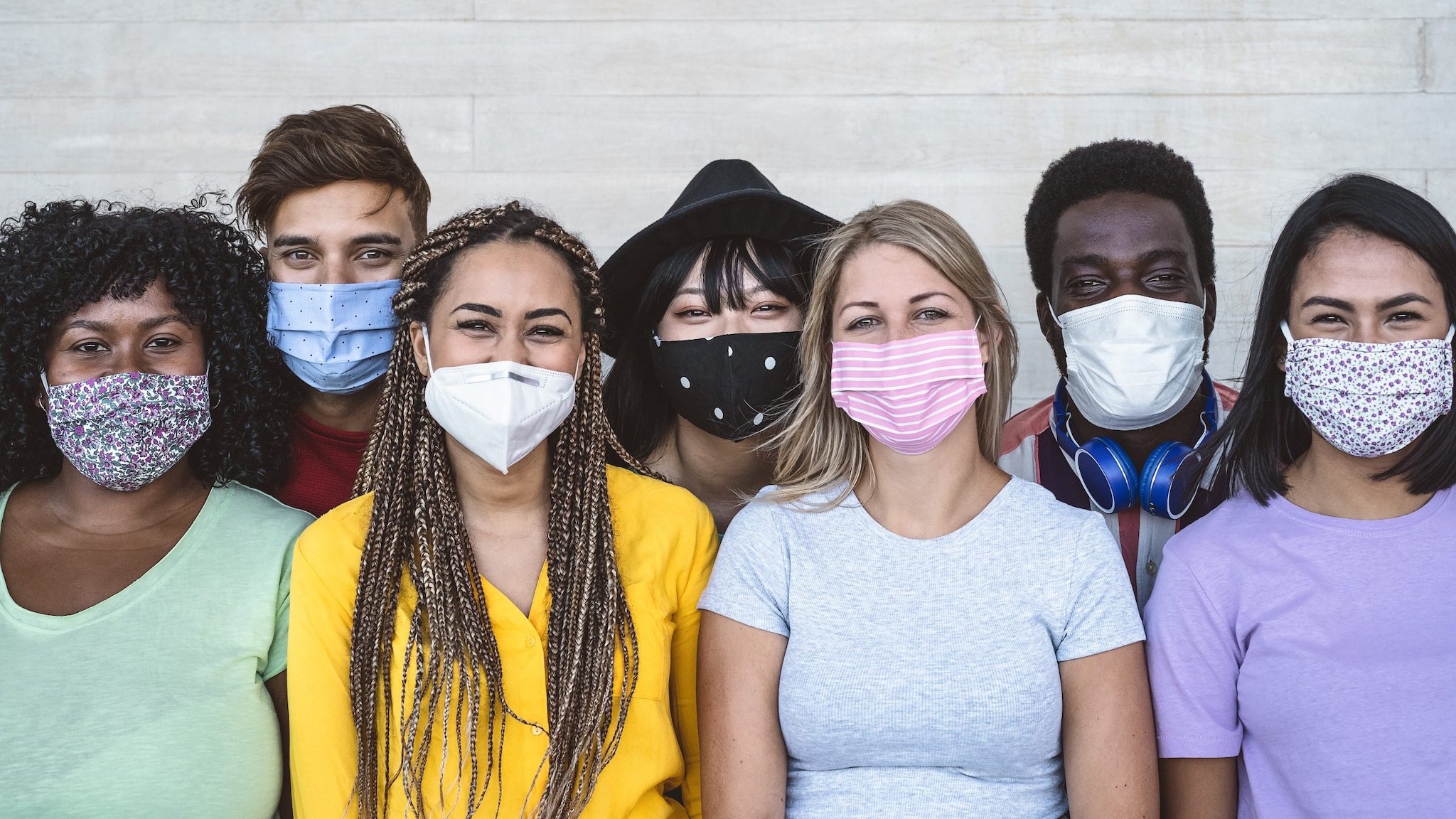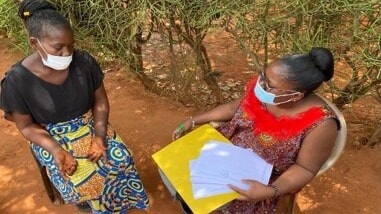Key points
- Social, behavioral, and evaluation sciences help us understand the role of human behavior, public opinion, and social and cultural factors in infectious disease spread.
- NCEZID experts provide divisions with tools and strategies for rapidly collecting high-quality data on public attitudes and behaviors.
- Experts apply behavioral science and community engagement strategies to strengthen response to outbreaks; evaluate program effectiveness and impact; and build skills across CDC and with partners.

Background
Social and behavioral scientists work to understand people's behavior during epidemics and how they feel about recommended protective measures. They also study how people protect themselves against everyday disease threats spread through food, water, or close contact with others. In addition, these scientists study how where you live and what groups you are part of affects your health. This knowledge is then used to develop infection control and prevention programs. Once these programs are in place, evaluators help program staff gather information about what needs improvement.
How we use social, behavioral, and evaluation sciences

NCEZID social scientists and evaluators support a wide range of efforts, including epidemic response. They work across the center, collaborating with infectious disease specialists to
- Help scientists incorporate measures of human behavior, public perceptions, and social context into studies of infectious diseases
- Help programs identify social and cultural factors relevant to populations at high risk for infectious diseases to enhance program effectiveness
- Evaluate programs and initiatives across the center and train program evaluators
- Conduct analyses that increase knowledge about the efficacy of health promotion efforts
- Develop tools and techniques for collection of community data and train users within both CDC and community agencies
- Support the center's global health security work by building the behavioral and social science capacity of international partners
Free tools for analyzing community views
CDC Tool for Thematic Analysis
A free Excel tool for analyzing community comments and feedback during a health emergency, or analyzing any kind of text data (notes, transcripts, social media posts, etc.) using a pre-programed text coding scheme or creating your own. The tool provides step-by-step instructions for building themes from coded text, providing a deep analysis of a text's meaning that can be used for planning community programs.
Guide to Adapting and Using Knowledge, Attitudes, and Practices (KAP) Surveys for Public Health Emergencies
This guide shows you how to adapt, locally pilot test, plan, and implement a community survey that is linguistically and culturally appropriate. The guide provides two example surveys that were developed in eastern Africa about Ebola-related knowledge, attitude and practices. The guide provides instruction both on how to use the Ebola surveys, and how to create and pilot test your own surveys that appropriate to your context. Once you have a survey that is ready to use, the guide reviews how to collect, store, analyze and present your findings, all using free tools and software.
Impact

NCEZID has used social and behavioral science to improve public health interventions for numerous public health emergency responses, including:
- Examining mask-wearing behavior during the COVID-19 pandemic1234
- Conducting surveys to understand public perceptions about monkeypox transmission and prevention during the 2022 U.S. monkeypox outbreak
- Collecting and analyzing community feedback data during the 2018-2020 Ebola outbreak in the Democratic Republic of the Congo5
- Evaluating community interventions to stop Zika transmission among pregnant women in Puerto Rico and the U.S Virgin Islands during the 2015 Zika outbreak678789
- Evaluating the Check And Report Ebola (CARE+) Program during the 2014 West Africa Ebola response9
- Nestor, C., Earle-Richardson, G., and Prue, C.E. (2024). The Role of the Environment: How Mask Wearing Varies Across Different Activities. BMC Public Health, accepted for publication [in press]
- Earle-Richardson, G., Nestor, C., Fisher, K. A., Soelaeman, R. H., Calanan, R. M., Yee, D., Craig, C., Reese, P., & Prue, C. E., Attitudes, Beliefs, and Perceptions Associated with Mask Wearing within Four Racial and Ethnic Groups Early in the COVID-19 Pandemic. J Racial Ethn Health Disparities. 2023 May 31:1–15. doi: 10.1007/s40615-023-01638-x. Epub ahead of print. PMID: 37258995
- Barile JP, Guerin RJ, Fisher KA, Tian LH, Okun AH, Vanden Esschert KL, Jeffers A, Gurbaxani BM, Thompson WW, Prue CE. Theory-based behavioral predictors of self-reported use of face coverings in public settings during the COVID-19 pandemic in the United States. Ann Behav Med. 2021;55(1):82-88. doi:10.1093/abm/kaaa109
- Fisher KA, Barile JP, Guerin RJ, Vanden Esschert KL, Jeffers A, Tian LH, Garcia-Williams A, Gubaxani B, Thompson WW, and Prue CE. Factors associated with cloth face covering use among adults during the COVID-19 pandemic—United States, April and May 2020 https://www.cdc.gov/mmwr/volumes/69/wr/mm6928e3.htm
- Earle-Richardson, G., Erlach, E., Walz, V., Baggio, O., Kurnit, M., Camara, C. A., Craig, C., Dios, L. R., Yee, D., Soke, G. N., Voahary, I., & Prue, C. E. (2021). New Mixed Methods Approach for Monitoring Community Perceptions of Ebola and Response Efforts in the Democratic Republic of the Congo. Global health, science and practice, 9(2), 332–343. https://doi.org/10.9745/GHSP-D-21-00144
- Earle-Richardson G., Prue C., Turay K., Thomas D. (2018). Influences of community interventions on Zika prevention behaviors of pregnant women, Puerto Rico, July 2016–June 2017. Emerging Infectious Diseases, 24(12), 2251-2261. https://doi.org/10.3201/eid2412.181056.
- Prue CE, Roth JN Jr., Garcia-Williams A, et al. Awareness, beliefs, and actions concerning Zika virus among pregnant women and community members — U.S. Virgin Islands, November–December 2016. MMWR Morb Mortal Wkly Rep 2017;66:909–913. DOI: http://dx.doi.org/10.15585/mmwr.mm6634a4.
- Poehlman JA, Sidibe TS, Jimenez-Magdaleno KV et al. (2019) Developing and testing the Detén El Zika campaign in Puerto Rico, Journal of Health Communication, 24:12, 900-911, DOI: 10.1080/10810730.2019.1683655
- 9. Prue, C. E., Williams, P. N., Joseph, H. A., Johnson, M., Wojno, A. E., Zulkiewicz, B. A., Macom, J., Alexander, J. P., Ray, S. E., & Southwell, B. G. (2019). Factors That Mattered in Helping Travelers From Countries With Ebola Outbreaks Participate in Post-Arrival Monitoring During the 2014-2016 Ebola Epidemic. Inquiry: a journal of medical care organization, provision and financing, 56, 46958019894795. https://doi.org/10.1177/0046958019894795
